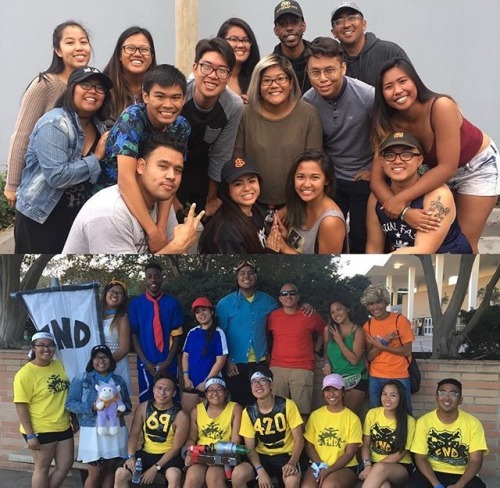#in the field
Introducing In the Field with Asians Doing Everything! We are happy to announce that our former blog intern Lara Santos is taking on the role of Field Reporter, bringing you news from the ground on Asians doing everything and anything. Our first feature of our In the Field series is an interview with Ryan Bautista and Rachel Agbayani, President and Info Chair of the California State University Northridge Filipino American Student Association (FASA). Enjoy!
Lara Santos, Asians Doing Everything Field Reporter: How did you start this organization?
Ryan Bautista: It was already started way before I was born, in the 1980s. It’s the longest active running cultural organization at CSUN.
LS: Do you know how the organization began?
RB: I’m not too familiar with it, unfortunately. However, there are some members who are kids of those who did start it–so a couple of the past presidents have been the kids of the founding members of FASA. I personally don’t know how it started.
LS: What were the influential reasons FASA was founded?
RB: There weren’t a lot of cultural organizations on campus at the time, so a group of people wanted to start something where they felt they belonged. They created events like PCN, Filipino Culture Night, in which they showed the rest of the CSUN campus what Filipino culture is about.
LS: What is your organization’s relationship to other API communities?
RB: We have a lot of members in multiple organizations. Some are also part of the VSA, the Vietnamese Student’s Association, as well as the Japanese Student Association. We have not coordinated any events together this semester, but I know we’re trying to; it’s still in the works.
LS: Where do you see this organization going in the coming years?
RB: It’s always our goal to try and open up more of our cultural stuff to the rest of campus. Recently, we’ve been having our cultural dance practices, as well as our PCN practices, out in Matador Square and in public open spaces. We always get like a ton of people coming up to us and asking, “What kind of practice is this?” or “What ethnicity are you guys?” We’ll tell them, and some actually come to PCN to see the finished product–the actual show.
LS: Do you have any hopes for the impact this organization will make on not only the CSUN community but beyond it?
Rachel Agbayani: For me, I think we’re growing as a bigger group, and we’re seeing people who are not just Filipino–we’ve become very diverse. So we just try to keep our culture out there and keep our ties with everyone. We just want to be more involved in our community and we’ve been reaching out to JFAV, Justice for Filipino American Veterans, an off-campus organization. I see us growing there, not just as a club, but more as an organization that reaches beyond CSUN.
LS: Is there anything else you want to add or anything you’d want to tell anyone reading this?
RB: You don’t really have to be Filipino to mesh with us. It’s an open group of people, so it’s always fun to do a lot of cultural stuff, but at the same time, we are a social club as well.
Post link

